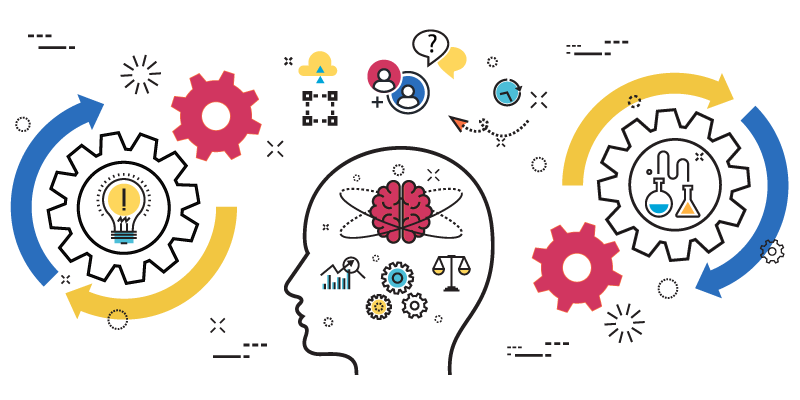Since WayAround is designed by architects, it should come as no surprise that there’s an underlying approach to the design. If you’ve ever looked at an architectural drawing (or blueprint, if you’re picturing the old school version), it’s clear that communicating precise details about every aspect of a building is both a science and an art. Similarly, WayAround requires equal amounts of precision—because we want to ensure that someone who is blind or low vision can go exactly where they intend—and elegance—because clean design looks and feels good. We call our design language WayScience, driven by five core principles.
Relevance
WayAround provides the information you need right now, and only that information. It doesn’t inundate you with extra detail. It doesn’t require you to rely on your memory. In order to provide only the most relevant, as-you-need-it information, we continually ask two questions: Where am I? and What do I want to do?
The answers to these two questions direct what information we provide and when. At each step of the way, WayAround confirms your present location and tells you what you can do there. For example, if you’re in a high-rise building and want to get to the 26th floor, WayAround confirms that you’re at the elevator lobby and provides information on which elevator(s) will take you to floor 26. We intentionally limit navigation information to the next logical location and the exit. Once you’ve taken the elevator, WayAround will confirm you are indeed at the 26th floor, and it will provide information about locations on that floor, including fire exits.
Simplicity
Closely related to relevance is simplicity. While no two buildings are alike, the way we communicate about buildings must be systematized and easy to understand. Each and every component of WayAround is continually refined to its simplest, essential form. Through this process of Continuous Refinement, we challenge ourselves to simplify and standardize information further and further, and as we streamline and pare down, we double check that we’ve accounted for all possible variances.
We have no tolerance for unnecessary or rarely used details or adornments. Our foundation lies in a tactile design that is easily recognizable through touch, though if you have any amount of sight, you can benefit from the high contrast design. Each element must be unique enough to be distinguishable, yet remain simple. We’ve refined shapes, angles, edges and textures to ensure you can truly access information at your fingertips. We find that once we arrive at just the right tactile design, it also happens to look appealing!
Confirmation
Many wayfinding systems focus on navigation: how to get from point A to point B. Confirmation is a key differentiator of WayAround. At every step, the first thing you want to know is whether you are where you think you are.
How do you determine where you are? You may use visual or auditory cues, or even scents to confirm your place. At a mall, you might search a directory for a specific store, then look for the store’s logo and window display to confirm you’re at the right store. Confirmation yields confidence, which is why WayAround starts by identifying where you are now. And if you’re not where you want to be, WayAround can point you in the right direction.
Consistency
One of the reasons WayAround is so intuitive is because it is consistent. Once the shape/texture/feel of a particular element is established, it always feels the same in any application, in any venue. Order and placement are also consistent, which makes WayAround easy to learn and use, and it appeals to good design principles of rhythm and balance.
Safety
No matter where you are, the location of an exit is always relevant. Building code requires clearly-marked exits, yet the red and white lighted signs placed near doors don’t mean much if you’re blind. WayAround brings information about the nearest exits to people who are blind, so that in the event you need to make an exit, you can find that information quickly and easily.
If you’ve read this far, we’ve clearly piqued your interest! Sign up for our emails to stay in-the-know about this exciting new wayfinding system, including opportunities for beta testing.

